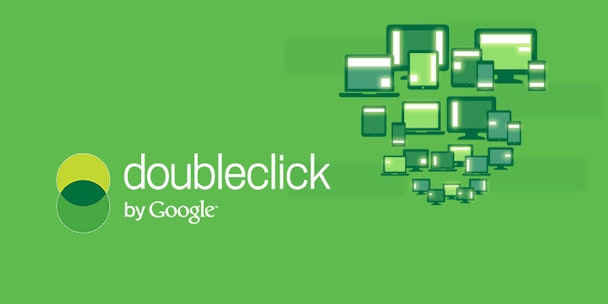Google enhances Programmatic Guaranteed for DoubleClick
With the recent furor over issues such as brand safety, walled gardens, murky contractual terms and bias in Google's auction process placing adtech in the dock, the online advertising giant has made a host of announcements around Programmatic Guaranteed in a move that would appear as a riposte to some of those allegations leveled against it.

Google' latest DoubleClick updates for Programmatic Guaranteed can be read as a move to counter attacks over its transparency
The announcements revolve around the continued roll out of its Programmatic Guaranteed offering for both media buyers and owners, with the online advertising behemoth trumpeting improved ad placement, viewability, plus enhanced efficiencies, as well as increased integration with third parties.
Google has today (April 5) made a string of announcements for the full roll out of its Programmatic Guaranteed offering for users of both its DoubleClick Bid Manager (DBM) and DoubleClick for Publishers (DFP) across desktop and mobile after beta-testing the technology since late 2016.
Included in the updates for its Programmatic Guaranteed launch is support for audience lists, granting media buyers improved targeting capabilities for desired audiences, as well as sponsorships, meaning publishers can sell premium inventory via DFP on a flat-fee sponsorship basis.
Among the Programmatic Guaranteed announcements are improved workflow processes for DBM, which Google claimed makes it easier for advertisers using the tools to discover media (at a price they are prepared to pay) and then insert ads into those placements, as well as improved integration with demand-side platforms (DSP) DataXu and The Trade Desk, as well as Adobe Advertising Cloud.
Audience lists
The announcements were made via the DoubleClick blog, with Google claiming they represent “advertisers gain guaranteed access to premium inventory on brand-safe publisher sites with the ability to optimize their campaigns programmatically”.
The launch of “audience lists” also means that publishers can more efficiently lock in revenue from “preferred advertisers with greater efficiency”, according to the post. It also revealed early users of the technology including Condé Nast and Vox, as well as Mercedes-Benz and Turkish Airlines on the advertiser side.
Using Programmatic Guaranteed with audience lists, advertisers can target (or exclude) their own audience lists and "secure guaranteed access to preferred publisher inventory while minimizing media waste,” reads the post.
It goes on to state that the update lets publishers better forecast the inventory they can compare with advertisers’ lists, and then guarantee that they are only serving ads to the buyer’s target audience. Early tests have seen a 25% uplift in ad viewability rates, as well as a 72% completion rate for advertisers using the technology to buy video placements.
Transacting fixed-fee deals programmatically
Google also said the update also means publishers can use DFP to sell flat-fee sponsorship placements, which is commonly used as a more traditional means of media selling, with the company claiming the technology leads to improved efficiencies, by assisting with workflow tools such as credit checking and invoicing.
Google also claimed the updates to DBM allow advertisers to access quality inventory at scale using its adtech offering, while publishers using DFP are also able to boost demand for their media space as Google has increased integration with a host of DSPs.
Third party integration
Included in the list of third parties that Google has increased integration with over its support for Programmatic Guaranteed including: Adobe Advertising Cloud (whose recently acquired video DSP TubeMogul had earlier been in a very public war of words with Google over its ‘walled garden’ policies); DataXu; MediaMath, and The Trade Desk.
The promotion material also includes a quote from Keith Eadie, Adobe Advertising Cloud, vice president of revenue and partnerships: "The days of programmatic buying being perceived as a niche tactic to build cheap reach are over. Brands are embracing automated, data-driven buying on their private and direct buys of the most premium inventory out there.
“Google’s expansion of Programmatic Guaranteed is part of what’s making that possible on the supply-side, and we’re proud to offer that inventory for cross-screen buying in Adobe Advertising Cloud.”
Tim Sims, The Trade Desk’s, vice president of inventory partnerships, added that expanding its integration with DoubleClick’s Programmatic Guaranteed offering was a “natural strategic progression”.
He added: “Collaborations like these are a positive sign for the industry. We’re all trying to deliver great storytelling opportunities for brands and better ad experiences for consumers; it starts with quality inventory and data-driven decisioning.”
Programmatic guaranteed is rapidly seen as a way to assure both media buyers and sellers against concerns over both the miss-delivery of ads using such technologies (commonly referred to as brand safety), plus the potential erosion of inventory prices via auction-based selling using real-time bidding (RTB) technologies.
A move to clear its name?
Google has been at the epicenter of the recent outcry over brand safety, with the furore originally sparked by an investigation from News Corp's editorial team which revealed that ads served on its video-sharing site YouTube were served against inappropriate content.
This move sparked outrage among the mainstream media causing each of the big six holding companies to assure their clients they were acting on the matter, as brands on both sides of the Atlantic suspended advertising on the platform.
In the immediate aftermath of the outcry, Google announced plans to introduce a suite of new tools and measures designed to restore confidence in its services, with Google’s chief business officer Phillip Schindler claiming: “We’ll offer advertisers and agencies more transparency and visibility on where their ads are running, and in the coming months we’ll expand availability of video-level reporting to all advertisers."

